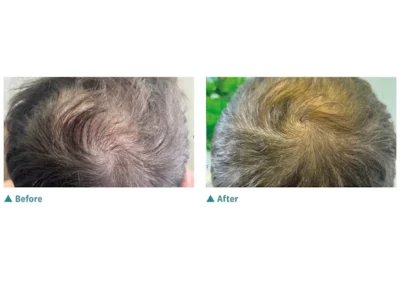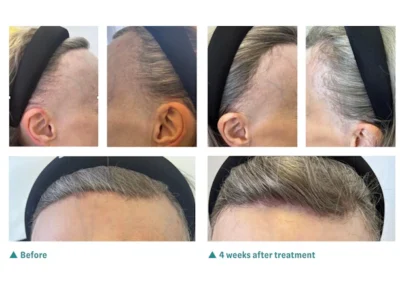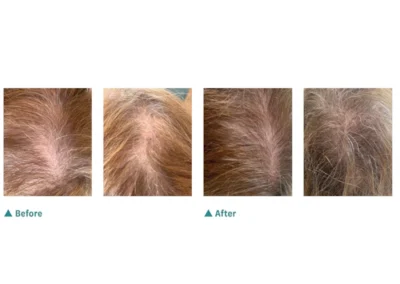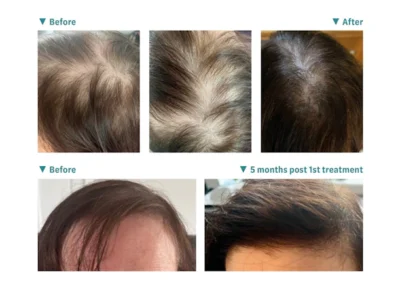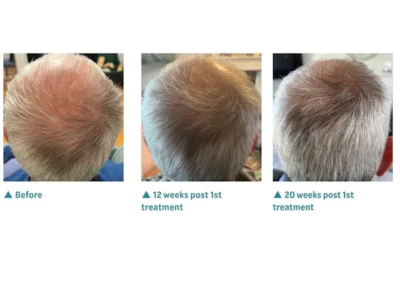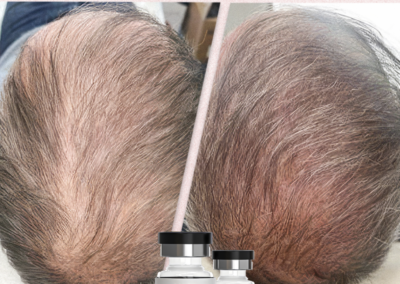Exosomes - Hair Loss Treatment
MEDfacials can help you with your hair loss concerns with Exosomes hair loss treatments.
Exosomes for hair loss...
Exosomes are small extracellular vesicles that play a vital role in cell-to-cell communication.
They contain high amounts of proteins, growth factors as well as anti-inflammatory and immune modulators. They have been studied for many years for their potential therapeutic applications in various medical fields, including restorative and regenerative medicine.
How does Exosomes work for hair loss?
Growth factors and signalling molecules in exosomes stimulate hair follicle cells, promoting their proliferation and differentiation. The anti-inflammatory properties of exosomes are helpful in reducing inflammation, which is often associated with hair loss conditions, in turn maintaining a healthy environment for hair growth.
Exosomes facilitate tissue regeneration and repair, aiding in the regeneration of hair follicles. They also stimulate angiogenesis (blood vessel growth) and therefore improve blood circulation to the scalp, thus stimulating hair health and hair growth.
Exosomes modulate stimulatory or suppressive effects on the innate immune system through exosome-mediated intercellular communications. They are crucial in immune regulation, including antigen presentation, immune activation, immune suppression, and immune tolerance.
These properties are the essence of treating autoimmune scalp conditions such as dermatitis, psoriasis, eczema, frontal fibrosing alopecia (FFA), as well as alopecia areata.
We would like to share our experiences and some clinical case studies, where exosomes derived from marine based stem cells were used and delivered with micro-needling techniques or with the Targetcool to treat hair loss.
Norwood Scale
There is the Norwood Scale (Hamilton-Norwood Scale), which is the leading classification system used to measure the extent of male pattern baldness. .Up until now we were only able to treat up to Classification type 3-4. With the advent of Exosomes, we are now able to treat up to type 5 or 6.
Exosomes case studies
Below are some case studies purely with exosomes as a standalone treatment in different age groups, and sexes, with underlying inflammatory and autoimmune conditions.
It is important to note that hair follicles need to be present (even if dormant) for hair regrowth to be possible.
A man who has a shiny, bald head is not suddenly going to be able to re-grow hair using exosomes, but if he’s thinning with follicles still present, an improvement is possible.
What Our Customers Say
Based on 450+ reviews

